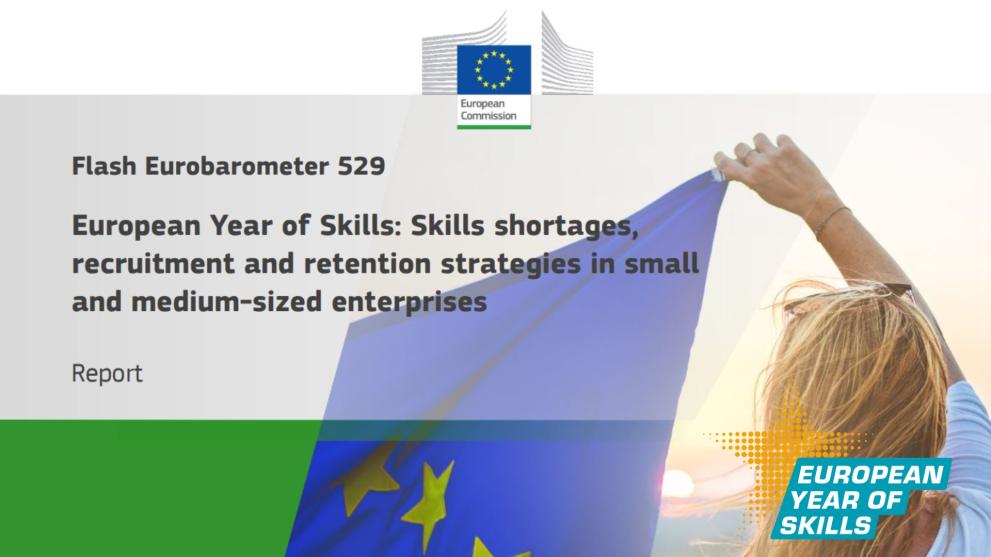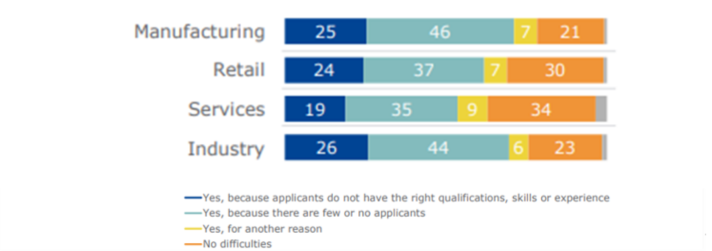
Small and medium-sized enterprises (SMEs) are the backbone of EU’s economy; they represent 99% of all businesses in the EU and employ around 100 million people. Yet, due to their small size, SMEs can face challenges in terms of accessing finance, markets, and skilled workers. 78% of SMEs in the EU find it difficult to recruit workers with the right skills. A lack of skilled workers can have significant implications for SMEs. 63% report that it holds them back in their general business activities, prevent them from adopting and using digital technologies (45%), and limit their capacity to green their economic activities (39%). In the context of green and digital transitions, this can make it difficult for SMEs to remain competitive, adapt to new challenges and build resilience to unforeseen challenges.
The extent to which SMEs struggle to find the workers with the right skills vary by country, sector, and occupation. For example, SMEs in Denmark are least likely to face difficulty finding workers with the right skills and those in Slovakia are most likely to face difficulties. SMEs active in manufacturing or industry are also more likely than those active in retail or services to face difficulties recruiting.
In terms of occupations, SMEs report facing most difficulties to recruit machine operators, craft, and skilled trade workers. For these occupations, overall, 71% of SMEs in manufacturing, 70% in industry, 61% in retail, and 54% in services faced difficulties recruiting these occupations. While some SMEs in these sectors faced difficulties recruiting because applicants did not have the right qualifications, skills or experience, more SMEs that faced difficulties, reported receiving few or no applications.
The reasons why SMEs may not receive enough applications are complex. A recent report on Employment and Social Developments in Europe 2023 highlights that aside from people not having the necessary skills, quality of jobs and working conditions also make it difficult to attract people to open positions.
Policy initiatives supporting SMEs and skills development
The EU’s SME Strategy for a sustainable and digital Europe sets out actions to strengthen SMEs capacities to adapt to digital and green transitions, including those aimed at addressing the changing skills needs for SMEs. The Single Market Programme provides various type of support to SMEs to facilitate access to markets, promote entrepreneurship, and address global and societal challenges, including through networks, such as Enterprise Europe Network.
In terms of skills development, the European Pillar of Social Rights sets out inclusive education and training and access to life-long learning as one of the key principles. The European Skills Agenda, an overarching EU policy framework, is set to translate this principle into practice through a series of initiatives, such as the Pact of Skills and Individual Learning Accounts. The European Social Fund Plus and the Recovery and Resilience Facility can provide funding for upskilling and reskilling initiatives in Member States.
Details
- Publication date
- 7 November 2023
- Author
- Directorate-General for Employment, Social Affairs and Inclusion


